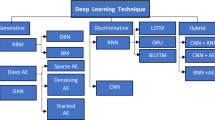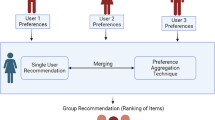Abstract
Latent factor model is better at capturing global information, but not local information. Therefore, many models combine the nearest neighbor information in the latent factor model to improve the performance in recommender system. However, the current fusion models pay no attention to the relationship between the accuracy of local information and model performance. In addition, the expression of local information is different between explicit neighbors and implicit neighbors, so that explicit feedback and implicit feedback have different values. Current fusion models usually utilize only one kind of feedback to capture the local information, which leads to the insufficiency and inaccuracy for using local information. These exited methods do not effectively learn the deep correlation between the similar users and similar items which all can represent the local information. Utilizing the recommender system of deep learning, we propose a fusion MLP model based on Joint Similar Groups, which utilizes both explicit feedback and implicit feedback in local information and learn the deep correlation between similar users and similar items. Experiments on two datasets show that our modes outperform state-of-art algorithms in explicit recommendation task.









Similar content being viewed by others
References
Ricci F, Rokach L, Shapira B. Recommender systems: introduction and challenges. In: Recommender systems handbook. Boston: Springer; 2015. p. 1–34.
Lu J, Wu D, Mao M, Wang W, Zhang G. Recommender system application developments: a survey. Decis Support Syst. 2015;74:12–32.
Goldberg K, Roeder T, Gupta D, Perkins C. Eigentaste: a constant time collaborative filtering algorithm. Inf Retriev. 2001;4(2):133–51.
Koren Y. Factorization meets the neighborhood: a multifaceted collaborative filtering model. In: Proceedings of the 14th ACM SIGKDD international conference on Knowledge discovery and data mining. 2008. pp. 426–434.
Xue HJ, Dai X, Zhang J, Huang S, Chen J. Deep matrix factorization models for recommender systems. In: IJCAI, Vol. 17. 2017. pp. 3203–3209.
Salakhutdinov R, Mnih A, Hinton G. Restricted Boltzmann machines for collaborative filtering. In: Proceedings of the 24th international conference on Machine learning. 2007. pp. 791–798.
Sedhain S, Menon AK, Sanner S, Xie L. Autorec: autoencoders meet collaborative filtering. In: Proceedings of the 24th international conference on World Wide Web. 2015. pp. 111–112.
Liang H, Baldwin T. A probabilistic rating auto-encoder for personalized recommender systems. In: Proceedings of the 24th ACM International on conference on information and knowledge management. 2015. pp. 1863–1866.
Li S, Kawale J, Fu Y. Deep collaborative filtering via marginalized denoising auto-encoder. In: Proceedings of the 24th ACM international on conference on information and knowledge management. 2015. pp. 811–820.
Kim D, Park C, Oh J, Lee S, Yu H. Convolutional matrix factorization for document context-aware recommendation. In: Proceedings of the 10th ACM conference on recommender systems. 2016. pp. 233–240.
Singhal A, Sinha P, Pant R. Use of deep learning in modern recommendation system: a summary of recent works. 2017. arXiv preprint arXiv:1712.07525.
Deng ZH, Huang L, Wang CD, Lai JH, Philip SY. Deepcf: a unified framework of representation learning and matching function learning in recommender system. In: Proceedings of the AAAI conference on artificial intelligence, vol. 33, No. 01. 2019. pp. 61–68.
He X, Liao L, Zhang H, Nie L, Hu X, Chua TS. Neural collaborative filtering. In: Proceedings of the 26th international conference on world wide web. 2017. pp. 173–182.
Chen W, Cai F, Chen H, Rijke MD. Joint neural collaborative filtering for recommender systems. ACM Trans Inf Syst (TOIS). 2019;37(4):1–30.
He X, Du X, Wang X, Tian F, Tang J, Chua TS. Outer product-based neural collaborative filtering. 2018. arXiv preprint arXiv:1808.03912.
Bai T, Wen JR, Zhang J, Zhao WX. A neural collaborative filtering model with interaction-based neighborhood. In: Proceedings of the 2017 ACM on conference on information and knowledge management. 2017. pp. 1979–1982.
Ebesu T, Shen B, Fang Y. Collaborative Memory Network for Recommendation Systems[C]. In: The 41st international ACM SIGIR conference on research & development in information retrieval. 2018. pp. 515–524.
Liu H, Liu H, Ji Q, Zhao P, Wu X. Collaborative deep recommendation with global and local item correlations. Neurocomputing. 2020;385:278–91.
Christakopoulou E, Karypis G. Local item-item models for top-n recommendation. In: Proceedings of the 10th ACM conference on recommender systems. 2016. pp. 67–74.
Xie R, Ling C, Wang Y, Wang R, Xia F, Lin L. Deep feedback network for recommendation. In: IJCAI. 2020. pp. 2519–2525.
Koren Y, Bell R, Volinsky C. Matrix factorization techniques for recommender systems. Computer. 2009;42(8):30–7.
Acknowledgements
This work has been supported by Major Natural Science Research Projects of Colleges and Universities in Jiangsu Province of China (19KJA510011), National Natural Science Foundation of China (71871109).
Author information
Authors and Affiliations
Corresponding authors
Ethics declarations
Conflict of interest
On behalf of all authors, the corresponding author states that there is no conflict of interest.
Additional information
Publisher's Note
Springer Nature remains neutral with regard to jurisdictional claims in published maps and institutional affiliations.
Rights and permissions
About this article
Cite this article
Li, Z., Li, S., Liu, Y. et al. Application of MLP Based on Joint Similar Groups in User Interest Expression and Recommendation Service. SN COMPUT. SCI. 3, 309 (2022). https://doi.org/10.1007/s42979-022-01187-w
Received:
Accepted:
Published:
DOI: https://doi.org/10.1007/s42979-022-01187-w




